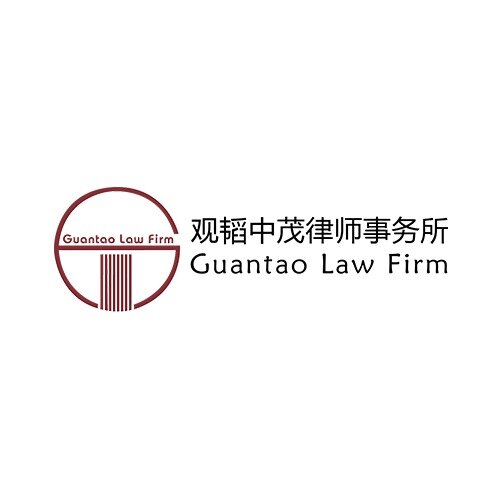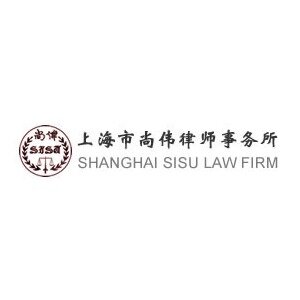Best Bankruptcy Lawyers in China
Share your needs with us, get contacted by law firms.
Free. Takes 2 min.
Or refine your search by selecting a city:
List of the best lawyers in China
About Bankruptcy Law in China
Bankruptcy law in China is governed primarily by the Enterprise Bankruptcy Law of the People's Republic of China, adopted in 2006 and effective from June 1, 2007. This law applies to the liquidation of insolvent enterprises, including both private and state-owned enterprises. The primary aim of this legislation is to provide a structured process for enterprises unable to meet their financial obligations, offering a systematic mechanism for debt resolution. China's bankruptcy law focuses on balancing the interests of creditors and the insolvent entity, while promoting the continuation of business operations whenever possible.
Why You May Need a Lawyer
There are various scenarios in which individuals or businesses may require legal assistance in navigating bankruptcy proceedings in China:
- If a business is facing financial distress and considering declaring bankruptcy, legal expertise is crucial in assessing the options, whether restructuring, reorganization, or liquidation.
- Creditors seeking to recover debts from insolvent companies may need legal counsel to ensure their claims are adequately represented in the proceedings.
- Foreign enterprises with operations in China facing bankruptcy issues may require legal advice to understand domestic laws and ensure compliance with local regulations.
- Companies seeking to acquire assets from bankrupt companies can benefit from legal assistance to ensure due diligence and legal process adherence.
Local Laws Overview
Key aspects of local bankruptcy laws in China include:
- The focus on reorganization: The law promotes the reorganization of enterprises as a preferred alternative to liquidation, aiming to preserve economic value and jobs.
- Provisions for conversion: If reorganization proves unfeasible, the law allows for the conversion to liquidation proceedings.
- Distribution of assets: The law specifies the sequence of debt payment, prioritizing secured creditors, wages, social insurance, and taxes before other unsecured creditors.
- Role of administrators: Bankruptcy administrators, often law firms or accounting firms, play a critical role in managing the bankruptcy estate, ensuring the fair and orderly process of asset evaluation and distribution.
- Creditor committees: Creditors are involved through committees, which provide oversight and approval for key decisions during the proceedings.
Frequently Asked Questions
1. What triggers the need for bankruptcy proceedings in China?
An enterprise can initiate bankruptcy proceedings when it is unable to pay its debts as they fall due or its liabilities exceed its assets.
2. Can individuals file for bankruptcy in China?
Currently, China's bankruptcy law primarily applies to enterprises, not individuals. However, some local regions, like Shenzhen, have begun exploring personal bankruptcy regulations.
3. How does the reorganization process work in Chinese bankruptcy law?
Reorganization involves developing a plan to restructure the debtor's operations and finances to continue business operations, subject to creditor approval.
4. What role do creditors play in bankruptcy proceedings?
Creditors participate through meetings and committees, providing input and approvals on significant actions like reorganization plans and asset sales.
5. What happens if a reorganization plan fails?
If reorganization efforts are unsuccessful, the proceedings may convert to liquidation, where assets are sold off to pay creditors.
6. How are employees protected during bankruptcy?
Bankruptcy law prioritizes the payment of wages and social insurance, aiming to protect employee rights during proceedings.
7. What is the difference between secured and unsecured creditors?
Secured creditors have legal claims over collateralized assets, giving them priority in asset distribution, while unsecured creditors do not, resulting in lower payment priority.
8. Can foreign creditors participate in Chinese bankruptcy proceedings?
Yes, foreign creditors can participate, but they must comply with Chinese legal procedures and timelines.
9. Are there any alternatives to bankruptcy for distressed businesses?
Apart from bankruptcy, distressed businesses can explore informal debt workouts or mergers and acquisitions as potential avenues for financial recovery.
10. How long does a typical bankruptcy proceeding take in China?
The duration varies based on the complexity of the case, with proceedings sometimes taking several years, particularly in reorganization cases.
Additional Resources
- Local Bar Associations: These provide listings of bankruptcy attorneys and legal resources.
- The Supreme People's Court: Offers guidelines and updates on bankruptcy law and practices in China.
- Ministry of Justice: Provides general legal information and resources applicable to bankruptcy issues.
Next Steps
If you require legal assistance in bankruptcy matters, consider the following steps:
1. Consult a specialized attorney: Seek advice from a lawyer experienced in Chinese bankruptcy law to understand your rights and options.
2. Gather all relevant documents: Compile financial statements, contracts, and any correspondence related to the financial distress situation.
3. Understand your objectives: Define whether you aim to reorganize the business, liquidate assets, or pursue another resolution strategy.
4. Discuss potential outcomes: Work with your legal counsel to assess possible outcomes and prepare for each scenario.
5. Stay informed: Keeping up with changes in laws and regulations will ensure informed decision-making throughout the bankruptcy process.
Lawzana helps you find the best lawyers and law firms in China through a curated and pre-screened list of qualified legal professionals. Our platform offers rankings and detailed profiles of attorneys and law firms, allowing you to compare based on practice areas, including Bankruptcy, experience, and client feedback.
Each profile includes a description of the firm's areas of practice, client reviews, team members and partners, year of establishment, spoken languages, office locations, contact information, social media presence, and any published articles or resources. Most firms on our platform speak English and are experienced in both local and international legal matters.
Get a quote from top-rated law firms in China — quickly, securely, and without unnecessary hassle.
Disclaimer:
The information provided on this page is for general informational purposes only and does not constitute legal advice. While we strive to ensure the accuracy and relevance of the content, legal information may change over time, and interpretations of the law can vary. You should always consult with a qualified legal professional for advice specific to your situation.
We disclaim all liability for actions taken or not taken based on the content of this page. If you believe any information is incorrect or outdated, please contact us, and we will review and update it where appropriate.
Browse bankruptcy law firms by city in China
Refine your search by selecting a city.














